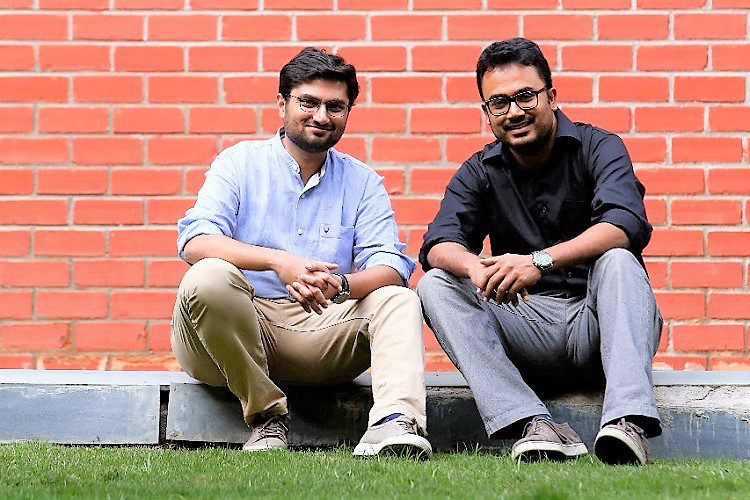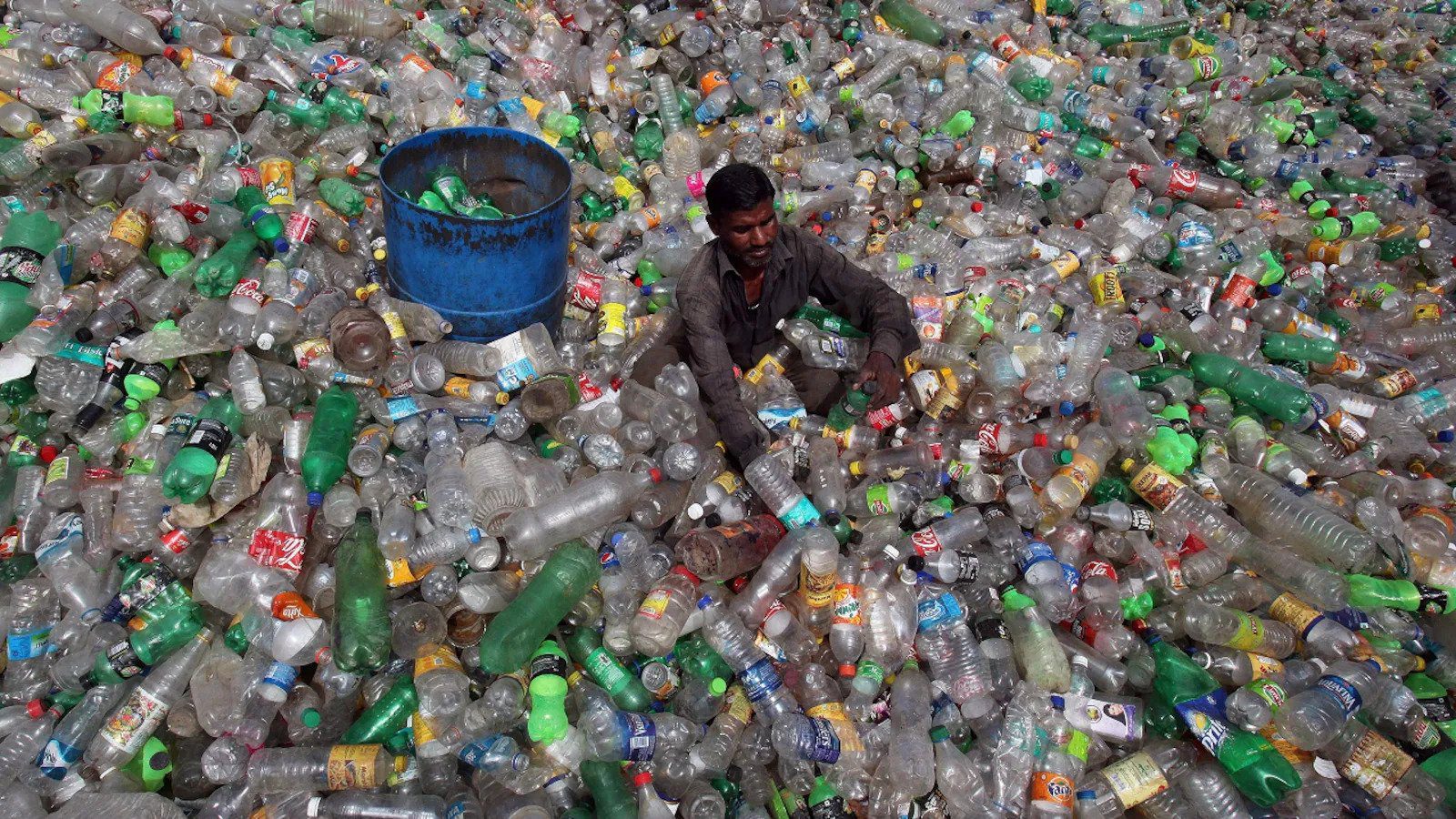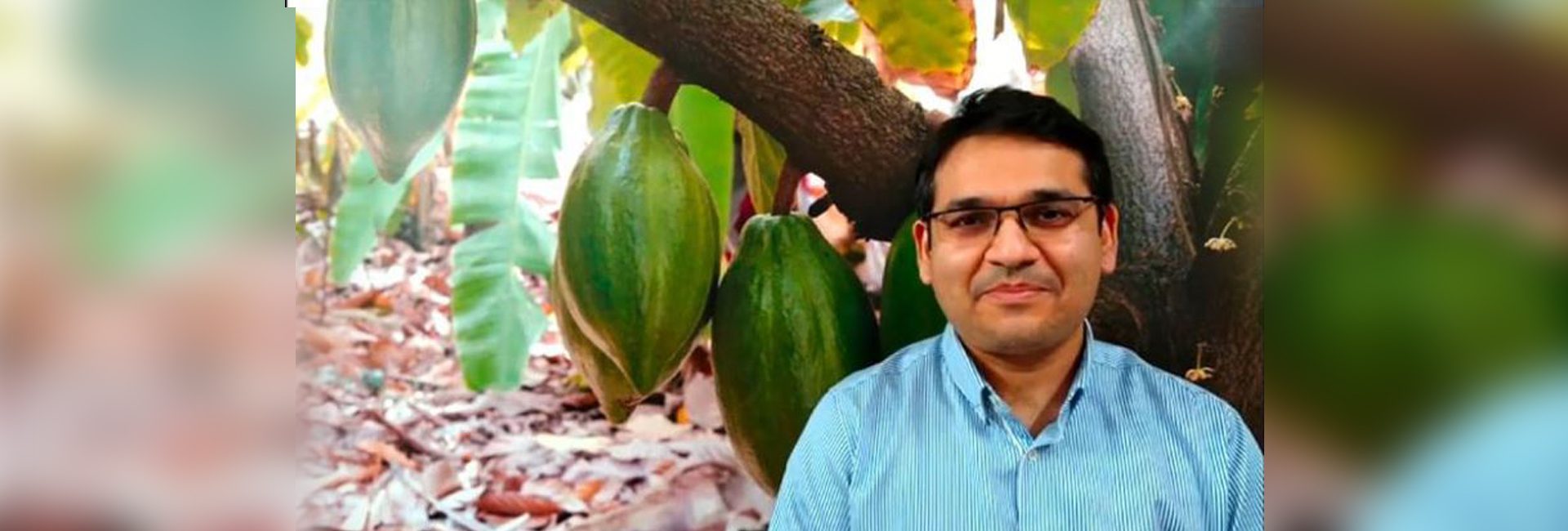(October 9, 2022) A Lok Sabha session in August this year saw Ashwini Kumar Choubey, Minister of State in the Ministry of Environment, Forest and Climate Change claim that around 34.7 lakh tonnes per annum of plastic was generated in India during 2019-20, out of which 15.8 lakh tonnes per annum of plastic waste was recycled. What began in the 1960s as a popular material for consumer products and a tangible sign of modernity has turned into an environmental hazard in the last few decades. While activists are continuously raising their voices against the use of single-use plastic, Hyderabad-based entrepreneurs Mani Kishore Vajipeyajula and Rajkiran Madangopal have already stepped on the gas, so to speak, with Banyan Nation, a startup that’s helping global brands use more recycled plastic instead of virgin plastic.

Mani Kishore Vajipeyajula and Rajkiran Madangopal
are the founders of Banyan Nation
“Recycling activities in India are driven by market forces that are informal, illegal, and largely invisible. Millions of ragpickers scavenge the streets or bins or the landfills collecting valuable materials, which they sell to the kabbadiwallahs, who then sell to backend aggregators, who finally sell to the recyclers. The goal of such an industry is to recover the material at the lowest possible costs, and at any cost,” says Mani Kishore Vajipeyajula in a video on the company’s website. That’s when he decided to take things into his hands and started Banyan Nation in 2013 to convert post-industrial plastic waste into high-quality recycled granules – Better Plastic – comparable in quality and performance to virgin plastic.
Mani and Raj first met at the University of Delaware, where they were pursuing their engineering degrees. It was during his MBA at Columbia Business School that the idea of Banyan Nation struck Mani. “I always knew going into business school that I wanted to solve real-world problems plaguing developing economies. During one of my travels in India, the filth deeply disturbed me. However, I realised something amazing was happening underneath. India was recovering and recycling almost double that of any developed or developing economy in the world. Yet the benefits of such a system were not being felt. I wanted to solve all this and build an organisation that would fundamentally transform the way India saw recycling and plastic,” the Global Indian says in the video, adding, “This is how my journey from Silicon Valley to the back alleys of Hyderabad began.” After working at companies like Motricity, Saint Gobain, Infospace, and Qualcomm for years at length, the two quit their lucrative jobs in the US to launch their startup.

Plastic is an environmental hazard
Such has been the impact of Banyan Nation that each year, it recycles 3600-tonnes of high-density plastic, which in turn saves huge carbon footprints. They have now recycled over one lakh tonnes of plastic, which also helped it bag the Circulars Awards at the World Economic Forum (2018) and World Economic Forum Global Technology Pioneers (2021). In 2020 itself, Banyan Nation helped to lead FMCG firms to make 100-million shampoo and lotion bottles using their recycled plastic. By 2030, they hope to replace 100,000 tonnes of virgin polymers with recycled plastics.
While Mani calls plastic “the most versatile invention of our time”, the entrepreneur is aware of how single-use plastic has become “an ecological and environmental poison.” It’s this discernment that led him to take action as he calls a “formal recycling system” the need of the hour which ensures “a superior quality, and the ability to recycle the material that has entered the system more than once.”
“We started by building a simple app in Hyderabad where we mapped over 1500 stationery recyclers. This data gave us a bird’s eye view of the city such as the amount of waste coming out of the house, and data on local efficiencies of collection and transportation of waste. At Banyan, we have used thermal and mechanical testing to produce a high-quality recycle that rivals virgin plastic. When the product enters the waste value chain, its ability to be recycled increases by a factor of three,” the entrepreneur explains.
Banyan Nation is changing the way India recycles and thinks about plastics and waste management. With the startup, Mani and Raj have found a way to convert plastic waste into reusable plastic, thus stopping it from making its way into landfills. “Our goal is to achieve scale and profitability while staying true to our core mission of solving the menace of plastic pollution and creating lasting environmental and social impact,” Mani, whose company is now aiming to have an installed capacity of 50,000 tonnes by 2024, told Forbes India. The entrepreneurs believe that collaborations with policymakers, corporations, and other startups can bring a shift in how Indians view plastics.




